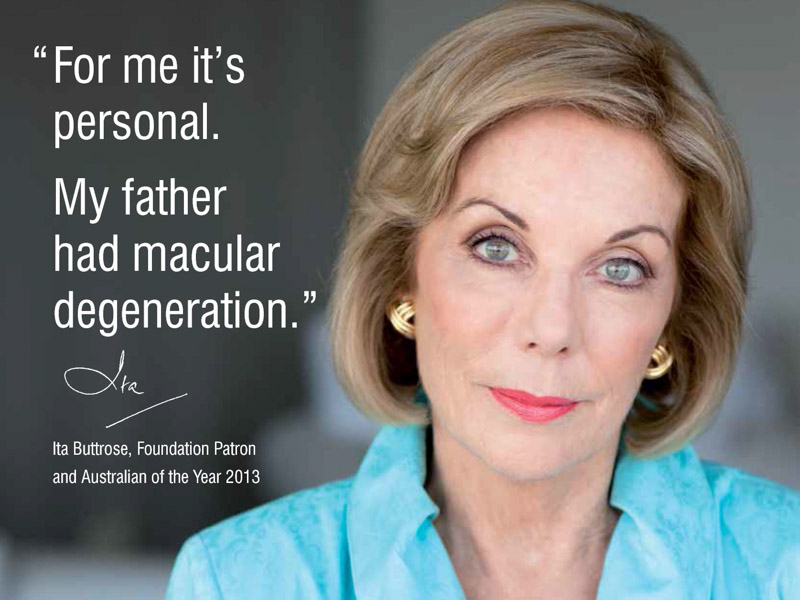History of MDFA
Macular Disease Foundation Australia (MDFA) was established in 2001. It started with a vision for a patient-focused organisation to support those living with, or affected by, age-related macular degeneration (AMD).
At the time AMD was – and still is – the leading cause of blindness and severe vision loss in Australia. But in 2001, there was little awareness of age-related macular degeneration. People didn’t understand the risk factors or how to prevent AMD.
The organisation was established – with the name Macular Degeneration Foundation – by prominent ophthalmologist Dr Paul Beaumont AM MBBS FRACS FRANZCO. He served as the first Chairperson, from 2001 to 2004. He remained a Director until 2013.
Public awareness
Our free National Helpline phone service, education sessions and public awareness campaigns have always been key features of our operations.
National Helpline
1800 111 709In 2004, we held our first national awareness week. It was fronted by our then Patron, prominent Australian author Colleen McCullough, who had AMD.
These public campaigns have been instrumental in shifting the Australian community’s understanding of aged-related macular degeneration.
The campaigns have focused on how to detect early symptoms and have stressed the importance of regular eye exams. The awareness campaigns now stretch over a full month. Macula Month is held every May and widely supported by eye health professionals.
In 2005, we welcomed Ita Buttrose as Patron. Ita is an Australian journalist, businesswoman, television personality and author. She has a powerful connection to macular disease through her father and uncle. Ita remains a tireless advocate on behalf of the macular disease community.

Advocacy and research
One of our early goals was to be a strong, effective advocate for our community. The community includes not just people with macular disease, but also their families and carers.
We were instrumental in the collaborative effort to ensure affordable access to anti-VEGF treatments for neovascular eye conditions such as wet age-related macular degeneration (wet AMD) and diabetic macular oedema (DMO). The first anti-VEGF drug was approved by the Therapeutic Goods Administration in 2007.
We added a key focus area to our activities in 2011, with the launch of the Research Grants Program. We are now one of the major sources of non-Government research funding for macular disease in Australia. For this, we thank our generous donors and supporters.
We also conduct or commission our own research. This includes surveys of the general population and the macular disease community to gather data on awareness rates, and particular issues that impact people living with macular disease.
Expanding the vision
In 2012, we changed our name to Macular Disease Foundation Australia (MDFA) to reflect the need for support and services to be available across all macular diseases, including diabetic eye disease.
Planning for the future
In a significant milestone for the macular disease community, in 2019 the federal Government released the Strategic National Action Plan for Macular Disease (the Action Plan). The Action Plan was developed by MDFA with valued input from expert advisors. It is the first national plan specifically for macular disease.
True to its beginnings, in the present day, MDFA remains focused on the needs of the macular disease community.
Our four primary pillars of operation are still:
- education and awareness
- support and services
- research and
- advocacy.
MDFA is recognised by the federal Government as the peak organisation representing the macular disease community. We are a registered charity, relying on the generosity of donors, supporters and volunteers.







